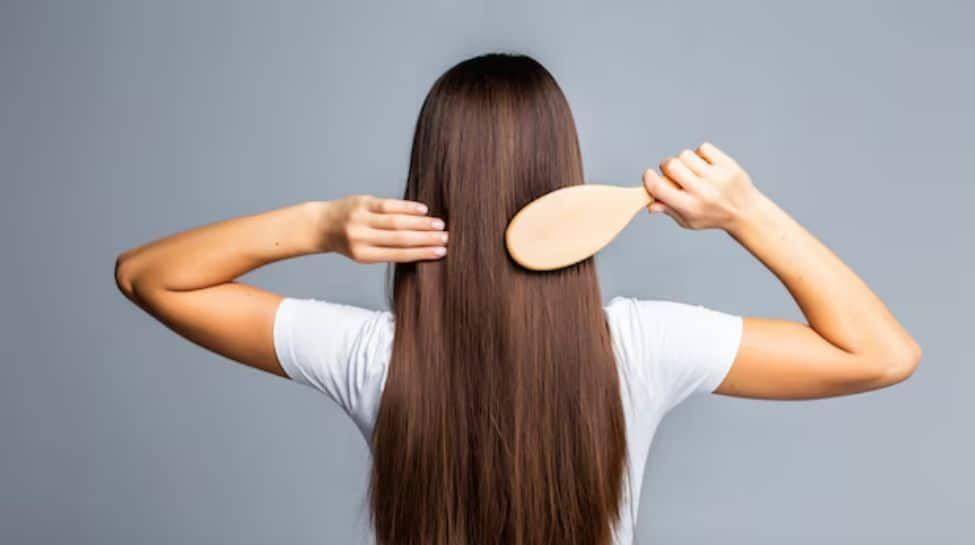Hair loss is a widespread problem that affects millions of people worldwide, often reflecting our general health and nutritional well-being. Although genetics is important in hair health, a lack of nutrients such as biotin can make hair loss even worse. Fortunately, by understanding the role of biotin and choosing the proper supplements, you can effectively encourage strong hair growth and address hair loss concerns.
Biotechnologist and Ozeeva co-founder Mihir Gadani explains the difference between synthetic and natural biotin and which one helps fight hair loss better:
Understanding Biotin and Its Effects on Hair Health
Biotin, also known as vitamin B7, is an important micronutrient that contributes significantly to hair health, skin quality, and nail strength. It plays a key role in keratin production, the protein that makes up the building blocks of hair. Biotin deficiency can cause hair to become thin, brittle, and even hair loss.
The daily recommended allowance for biotin has not been officially set by the FDA, but generally, 2-5 mcg is considered sufficient to maintain hair health. However, in cases of hair loss or thinning, this requirement may be 30-100 mcg or even more, depending on individual needs.
Natural vs. Synthetic Biotin: Key Differences
When it comes to biotin supplementation, not all sources are the same. There is a significant difference between natural, plant-based biotin and its synthetic counterpart.
Natural biotin, specifically d-biotin found in plant sources, is more biologically active than synthetic biotin. This means your body can use it more efficiently, leading to better results for hair health. Plant-based biotin has a different structure than synthetic biotin, making it more easily absorbed by the body. This increased absorption rate means you’re getting more benefits from each dose.
Natural biotin sources often come with other beneficial compounds. For example, plant-based biotin derived from Sesbania agatta extract provides biotin as well as anti-inflammatory and antibacterial properties. Natural biotin can be consumed long-term without any side effects, making it a safe option for maintaining hair health.
Perhaps most importantly, the only active form of biotin (D-biotin), when naturally occurring, is 100 times more biologically active than synthetic biotin. This means you are getting a more potent dose from natural sources.
The power of plant-based biotin
Plant-based biotin, specifically derived from Sesbania agatta extract, offers a better solution for combating hair loss. Clinical studies have shown that plant-based biotin can significantly contribute to thicker, stronger hair in just a few months. For example, SesgenBio, which uses standardized Sesbania leaf extract, goes far beyond just providing biotin. It offers a variety of benefits, including increasing hair density and strengthening hair from the roots.
Plant-based biotin supplements often provide a more holistic solution. They may improve blood circulation to the scalp, promote healthy follicles and enhance nutrient absorption. Many plant-based biotin sources naturally contain other hair-healthy nutrients, creating a synergistic effect that synthetic biotin alone cannot provide.
High-quality plant-based biotin supplements, like SesGenBio, provide a standardized 0.5% biotin content, ensuring a potent and consistent dosage in each serving.
Add biotin to your hair care routine
- To maximize the benefits of biotin for hair, take a holistic approach involving diet, supplements, and proper hair care. Focus on consuming biotin-rich foods such as oat flakes, wheat germ, nuts, legumes, mushrooms, and whole grains.
- Leafy vegetables like spinach, as well as dairy products like cheese and milk are also beneficial. Include fruits like apples and bananas and vegetables like carrots and potatoes in your daily diet to naturally increase biotin intake and get healthy hair from the inside out.
- In addition to dietary intake, add a plant-based biotin supplement to your daily regimen, derived from natural sources like Sesbania agatta extract, for improved bioavailability and additional plant-based nutrients. Combine this internal nourishment with external care by using clean, plant-based hair care products tailored to your specific hair type and needs.
- This comprehensive approach ensures holistic support for your hair’s health, effectively addressing both internal and external factors.
- Consistency is key to achieving results with biotin. Follow your biotin-rich routine consistently for 3 to 6 months to see a significant increase in hair strength and growth. If you are at a higher risk of biotin deficiency due to factors such as long-term antibiotic use, specific medical conditions, or certain diets, consult a healthcare professional for guidance on proper supplementation.
- By prioritizing dietary sources and quality supplements, as well as maintaining good hair care habits, you can ensure that your body receives optimal biotin support for healthy hair growth and effective hair loss management.
- Plant-based biotin emerges as a better option for promoting hair health and combating hair loss due to its increased bioavailability, improved absorption, and additional plant-based nutrients. Adding natural sources like Sesbania agatta extract to your diet and supplement regimen offers a comprehensive approach to address biotin deficiency and support hair health and growth.
- Remember, beautiful hair care starts from the inside out, and harnessing the benefits of plant-based nutrition can unleash your hair’s full potential, helping you effectively combat excessive hair loss.
